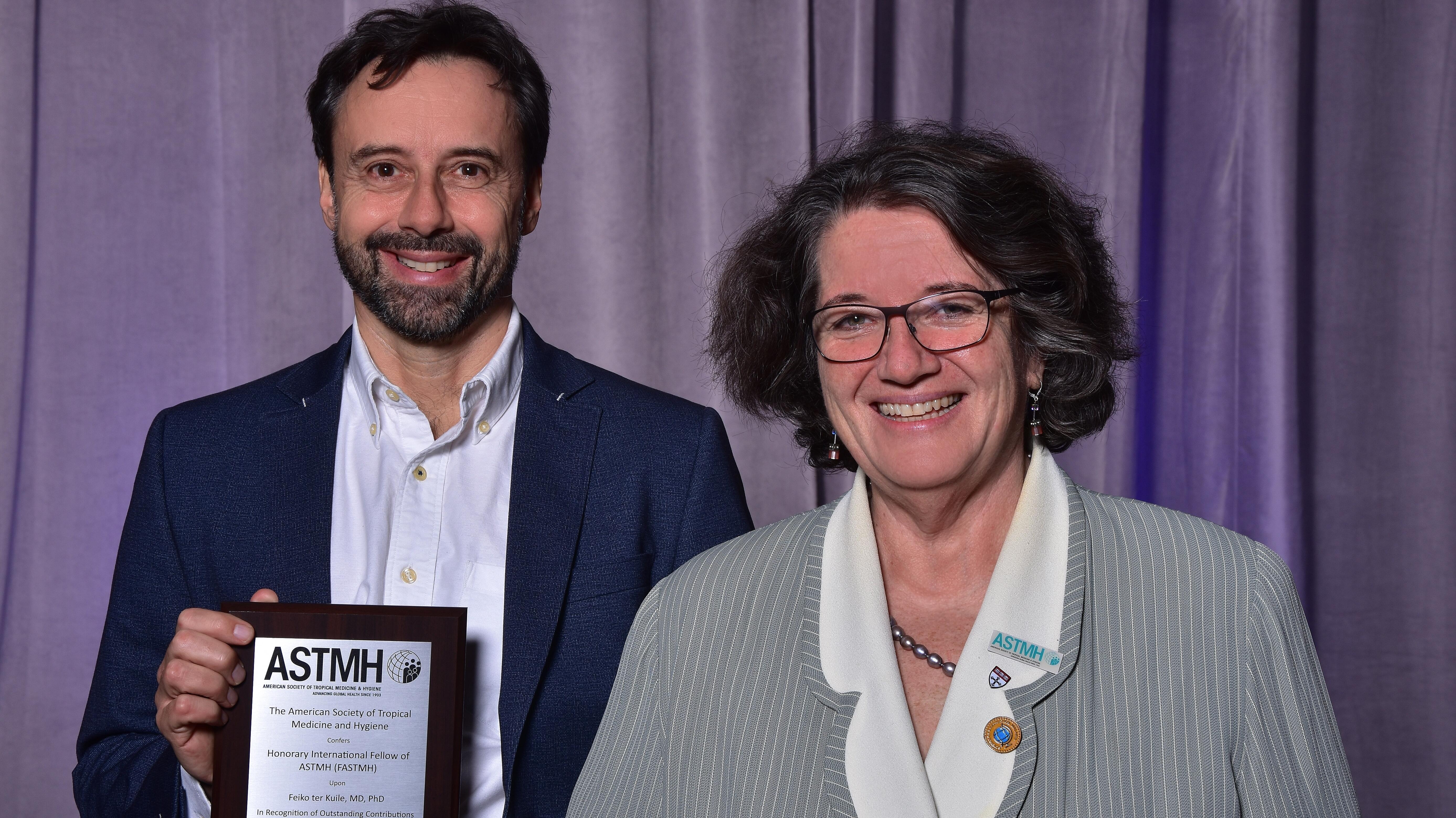
LSTM’s Professor Feiko ter Kuile has been elected as an Honorary International Fellow of the American Society of Tropical Medicine and Hygiene (ASTMH).
He was celebrated, along with four other new Fellows, during the opening ceremony of the ASTMH Annual Meeting which was held in New Orleans at the end of October. This special membership is conferred in recognition of outstanding accomplishments by an individual, who is not an American Citizen, who has made eminent contributions to some phase of tropical medicine and hygiene.
Professor ter Kuile is a clinical epidemiologist who trained in medicine at the Academic Medical Centre at the University of Amsterdam. He previously worked on the Thai-Burmese border, based at the Shoklo Malaria Research Unit and then spent eight years at Malaria Branch of the Centers for Disease Control and Prevention, initially in Kenya, then in Atlanta. He joined LSTM as a senior clinical lecturer in 2003 and since 2008 has been Professor of Tropical Epidemiology, heading the malaria epidemiology section in the department of Clinical Sciences and LSTM’s malaria research collaboration with the Kenya Medical Research Institute (KEMRI) and the U.S. Centers for Disease Control and Prevention (CDC) in western Kenya.
His main research interest is the epidemiology of malaria and the evaluation of new interventions for the control of malaria in children and pregnant women. He was the head of the Malaria in Pregnancy Consortium, from 2007-2017, a network of 40 research institutions worldwide conducting research on the treatment and prevention of malaria in pregnancy.
As his name was added to the list of previous awardees including some of the most eminent scientists in tropical medicine, he said: “I am proud to have been elected to this honour by the American Society of Tropical Medicine and Hygiene. I think that this Fellowship reflects the importance that malaria still holds in the field of global health, and how the effort to find and test new interventions to treat and prevent this terrible disease remain of vital importance.”